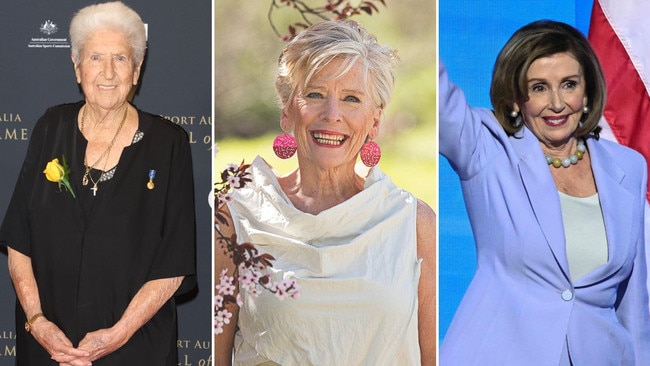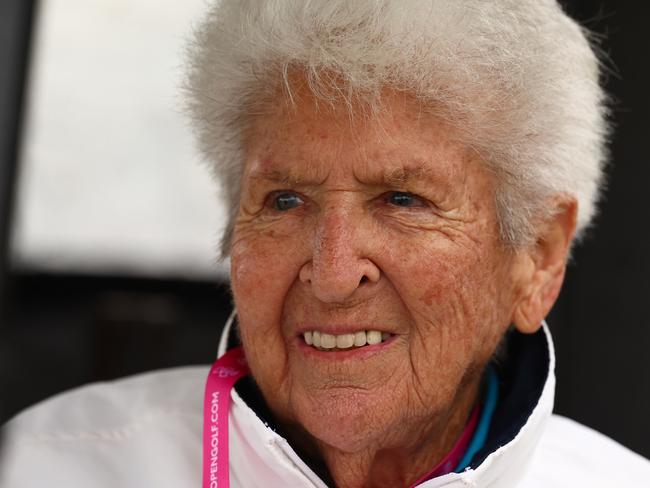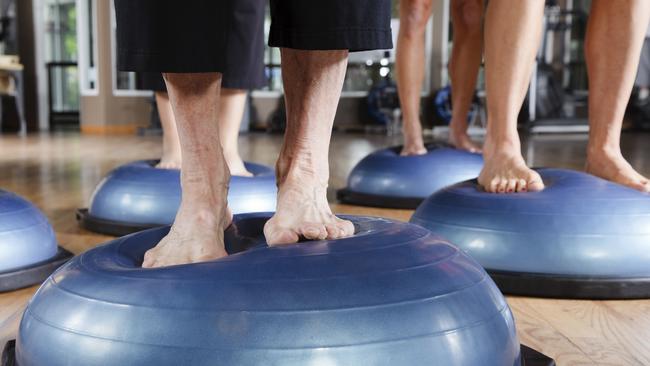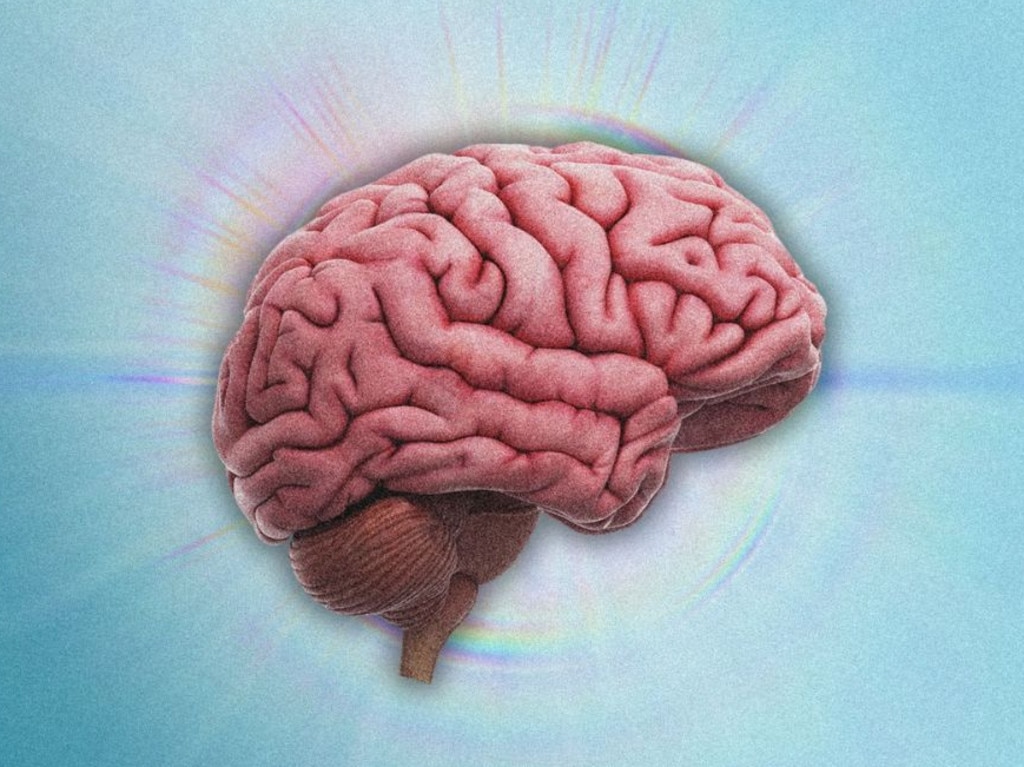Falls are bad news as you age, but not inevitable. How can you avoid them?
Falls are riskier as we age, and can be life changing. But they are not inevitable.

When Maggie Beer fell down the stairs at her home in August, the results were catastrophic. Left with multiple broken bones, the acclaimed chef underwent three emergency surgeries, and then had to recuperate for more than a month before she was even able to stay up all day without resting.
A few months later, the nation’s most acclaimed Olympian Dawn Fraser tripped on her daughter’s driveway. She broke her hip and four ribs, and spent three days in an intensive care ward after hip replacement surgery, her injuries so pronounced that her family feared she would die.
Days after, the former US House Speaker Nancy Pelosi, on a congressional trip in Europe, tumbled hard as she descended marble stairs at the Grand Ducal Palace in Luxembourg. She was hospitalised, and later had to have her hip replaced during surgery in Germany.
While these three public figures inhabit mostly different worlds, they also share some telling commonalities. All are older (Dawn Fraser is 87, Nancy Pelosi is 84 and Maggie Beer is 80 next month), and while they are all active, each of them has tumbled badly and with serious consequences.

Falls might be a regular and largely insignificant childhood occurrence. But with age, they can be life-changing. According to the World Health Organisation, falls are the second leading cause of unintentional injury deaths worldwide, responsible each year for nearly 700,000 fatalities around the globe. Death rates are highest among adults aged over 60.
Locally, the statistics are equally telling. Every day, 364 older Australians are hospitalised as a result of a fall. Every day, 14 of them die.
Everyone has had a tumble at some stage. Why, then, are the statistics so grim for older people?
“When you’re younger you fall and your muscles tense up, your reaction sets in,” says Professor Kim Delbaere, director of innovation and translation at Neuroscience Research Australia’s Falls, Balance and Injury Research Centre. “Kids in the playground fall all the time and they challenge their balance, by dancing or doing acrobatics, in ways that we don’t when you are older.”
Not only do we tend to avoid challenging our balance as we age, the ageing process itself brings heightened risks. Reactions become less sharp. Muscles weaken. Bones can become more brittle. With age, it’s harder to recover from injury, and from surgery.
As Professor Delbaere, who is also president of the Australia and New Zealand Falls Prevention Society, says: “Falling hurts so we don’t practice it and it can be embarrassing.”
Even the possibility of falling can generate trepidation, which in turn creates other issues. “Fear of falling is twice as common as falling itself. It’s a real fear for many because you don’t want to get the injury. But at the same time it can get you into this negative spiral.”
If you’re concerned about falling outside, for example, that might lead you to remaining indoors, which can present a whole other set of issues.
Yet while the risks associated with falls increase with age, the good news is that falling with age is not inevitable. In fact, says Professor Delbaere, you can prevent your risk of falling by as much as 30 per cent.
“While fall risk increases with age, it’s definitely not something that has to be a normal part of ageing at all,” she says. “Falls are largely preventable if we follow some steps.”

Balance exercises are the best option. Balance naturally starts to deteriorate from around the age of 40, although falls tend to only be seen as a serious issue about two decades later. From 65, one in three people will fall once a year. Of them, half will fall again within the same year, and about 10 per cent will have an injury that can be life-changing.
The exact balancing exercises needed to reduce your risk of falling will differ depending on your ability. For some it will entail walking with one foot in front of the other next to the kitchen bench. For others, it might be standing on one foot with eyes closed.
To effectively improve your balance, you will need to practise for at least two hours a week, each week for six months, and preferably ongoing.
Other steps to prevent falls include removing trip hazards at home, having spaces well lit, ensuring your eyes are healthy, and taking care of your feet, as you are at greater risk of falling if they are sore.
It might seem like a bit of work, but the benefits can be widespread. Apart from the heavy personal toll, falls come with significant societal costs. In 2022-23, alone, they were the leading cause of injury hospitalisations across the continent, according to the Australian Institute of Health and Welfare, accounting for almost every second case.
A report from the Australia and New Zealand Falls Prevention Society, meanwhile, has found that falls in older adults cost the Australian healthcare systems $2.3bn each year.
But it’s the personal details that make falls so concerning. Older people who are hospitalised as a result of a fall are twice as likely to be admitted to an aged care facility. As Professor Delbaere says: “You are more likely to end up in a nursing home because of a fall than because of dementia.”





To join the conversation, please log in. Don't have an account? Register
Join the conversation, you are commenting as Logout